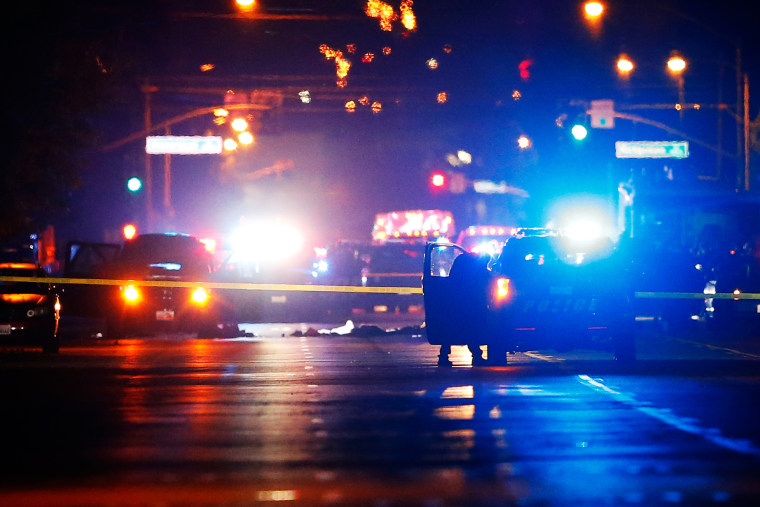In October, following a deadly mass shooting in Oregon, a visibly angry President Obama delivered a message from the White House: "[T]houghts and prayers are not enough. It's not enough. It does not capture the heartache and grief and anger that we should feel. And it does nothing to prevent this carnage from being inflicted someplace else in America, next week or a couple of months from now."
Two months and one day later, an even deadlier mass shooting unfolded in Southern California, prompting Sen. Chris Murphy (D-Conn.) to take the president's sentiment about "thoughts and prayers" a little further. "Your 'thoughts' should be about steps to take to stop this carnage," the senator said on Twitter. "Your 'prayers' should be for forgiveness if you do nothing -- again."
Whether Murphy intended to cause a stir or not, his message sparked some criticism. The Hill published a piece under the headline, "Dem senator criticizes post-shooting 'prayers.'"
Sen. Chris Murphy (D-Conn.) says people who pray for the victims of shootings should be asking for forgiveness for their inaction. [...] Murphy drew criticism from users on Twitter who said his remarks were "offensive" and demeaning toward religious people.
I think this badly misses the point of an important sentiment. Murphy can certainly speak for himself, but the "prayers are not enough" argument generally has nothing to do with criticizing prayer or those who worship. It has everything to do with the idea that extending thoughts and prayers should be the start, not the end, of a constructive conversation about reducing gun violence.
In other words, when politicians -- officials who can take steps to save lives through effective policymaking -- offer thoughts and prayers after mass shootings, it's fine, but it's also inadequate. The sentiment warrants a follow-up question: "The thoughts and prayers are appreciated, but what's next?"
If the answer is, "We'll offer more thoughts and prayers after the next mass shooting," the response isn't enough.
The New Republic's Elizabeth Bruenig made an interesting observation yesterday when highlighting Twitter responses to the San Bernardino shooting from the Democratic and Republican presidential candidates.
If you're keeping score, that's prayers, luck, and blessings from Republicans, and gun policy prescriptions from Democrats. One hundred and forty characters isn't much, to be fair, but I can think of at least one way to split the difference: praying for the strength and wisdom to fix our heinously broken gun policy, for starters.
And that's ultimately what this is about. I haven't seen any politicians or public officials suggest people shouldn't extend thoughts and prayers to the victims and their families, but there seems to be some disagreement over what should follow the well-wishes.
For their part, congressional Democrats have vowed to continue pushing policy measures intended to curtail gun violence and congressional Republicans will very likely continue to reject those proposals reflexively, just as they did this week.
